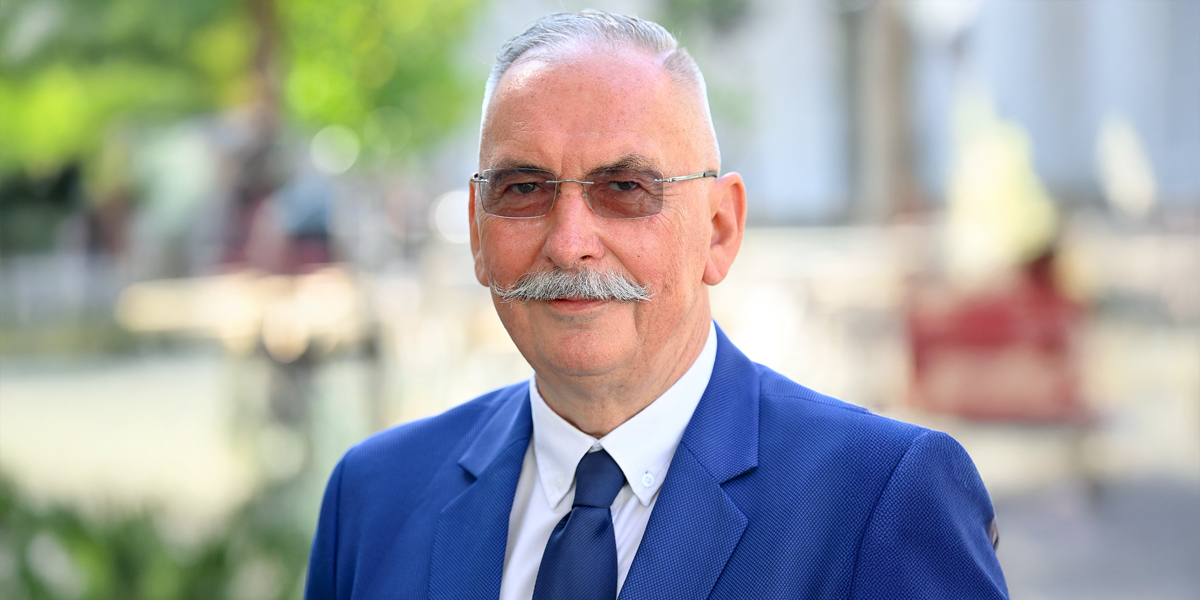
30 May Interview with Dr. Zoltán Szilvássy, Rector, Debrecen University
Could you provide a brief introduction of Debrecen University and highlight some of its main current focuses?
The university’s roots go back to medieval times, when it was a religious institution. A major turning point came in 1912, when the Austro-Hungarian Empire founded Debrecen as a modern university, its only such investment in Hungary. From just 300 students in its first semester, we have grown to over 30,000 today, with a large international student population. We host the highest number of foreign students in the region, initially from Scandinavia and now from countries like Nigeria, China, Korea, India and Pakistan. We also have a strong presence in Central Asia, with a campus in Tashkent and partnerships across Uzbekistan, Kazakhstan and others.
Culturally, we host international hubs such as the Confucius Institute (China), a Russian cultural center, a US studies program in Hungarian and the Turkic Corner, representing Turkey and Central Asian nations. These connections support collaborative innovation, especially in pharmaceuticals, medical sciences and agriculture.
The academic landscape in Hungary is becoming increasingly competitive. How would you describe the university’s strategy and its connection to the city and industry?
The University of Debrecen has followed the same core strategy for 500 years: strong cooperation with the city, religious institutions, financial players and industry. This ‘quadruple helix’ model, linking academia, government, industry and society, remains the foundation of our development. Our educational programs are closely aligned with industry needs and government priorities. As a result, the university has a unique portfolio, combining four key pillars: medical sciences (including medicine, dentistry and pharmacy), agricultural and food sciences, natural and human sciences, and, more recently, engineering and industrial training.
The city’s rapid industrialization, especially in the automotive sector, has further strengthened this model. Debrecen has become a major hub for German and Chinese manufacturers, led by BMW and supported by companies like Continental, Krones, Schaeffler and battery giants such as CATL and EVE Energy. The University of Debrecen serves as a key academic partner, ensuring a skilled workforce and fostering innovation across these global collaborations. BMW brings its own industrial ecosystem, including numerous suppliers and partners. Through this, we have gained access to a global industrial network. BMW also sees value in our quadruple helix model.
Today, over 400 companies operate around the university, including major international partners like General Electric from the US, Rosatom from Russia and China Construction. We are also Hungary’s only member of the Silk Road University Network, expanding our strategic global connections. However, a key challenge remains: most manufacturing in Hungary is foreign owned, meaning profits and taxes often leave the country. That is why we are committed to supporting national industrialization. As Hungary’s largest university and one that is financially self-sustaining, we believe innovation, manufacturing and education form a stable triangle, especially vital in today’s uncertain global climate.
With more than 7,600 international students from over 140 countries, how do you maintain and grow this international presence and are there any specific regions into which you would like to expand or target next?
In addition to traditional faculties, we have industrial cabinets in areas like pharmaceuticals, food and automotive industries. These bring faculty leaders and regional industry partners together to regularly review and adapt academic programs based on market needs. We are also expanding into nuclear sciences, thanks to our partnership with Rosatom and our twin university in Tomsk, Russia. Russian experts deliver lectures and nuclear technologies are integrated into our curriculum. Our students have ranked among the top three in international competitions in radioactive sciences, with this year’s event, sponsored by Rosatom and GE, hosted in Debrecen.
Our core strengths remain in medical sciences, particularly radiotherapy and radionuclide therapy, as well as industrial pharmacy — offered only in France and Debrecen. We are also advancing in agricultural sciences, focusing on functional and medical foods, at the intersection of pharma and food industries. We focus on collaboration with Ireland and Spain, especially Madrid and Barcelona, through our program, which emphasizes agricultural and industrial development in the Mediterranean region. This aligns well with Hungary’s geography: the south has a Mediterranean character, while the north has historical German influences.
Does the university have any planned partnerships with US-based universities or companies, such as internship programs or exchange opportunities?
We have a joint degree program with South Dakota State University in agricultural sciences. Students spend one semester in the US and one in Hungary, earning a shared diploma. We are also discussing a potential partnership with Stanford in medical sciences. Our key international focus is on the US, Russia, China and India. These collaborations are strictly academic, free from political influence, which we believe is essential for long-term success.
You’re working to expand your influence across various sectors and continue developing the university. Can you share your vision for the university’s future over the next five to ten years?
We aim to play a direct role in Hungary’s industrial growth by commercializing our research and taking equity in companies. Ideally, we want to create or co-own firms where our knowledge can drive innovation. We already operate our own industrial park, including a pharmaceutical plant — Debrecen’s third such plant — alongside Richter and Teva. This facility can support clinical trials and small-scale production. My vision is a self-sustaining university, supported through industry collaboration rather than relying on government funding.
Our strength lies in being multidisciplinary and closely linked to industry. We also recognize that the world extends far beyond the European Union, with many opportunities in the USA and Asia that go beyond what Europe alone can offer.

Sorry, the comment form is closed at this time.